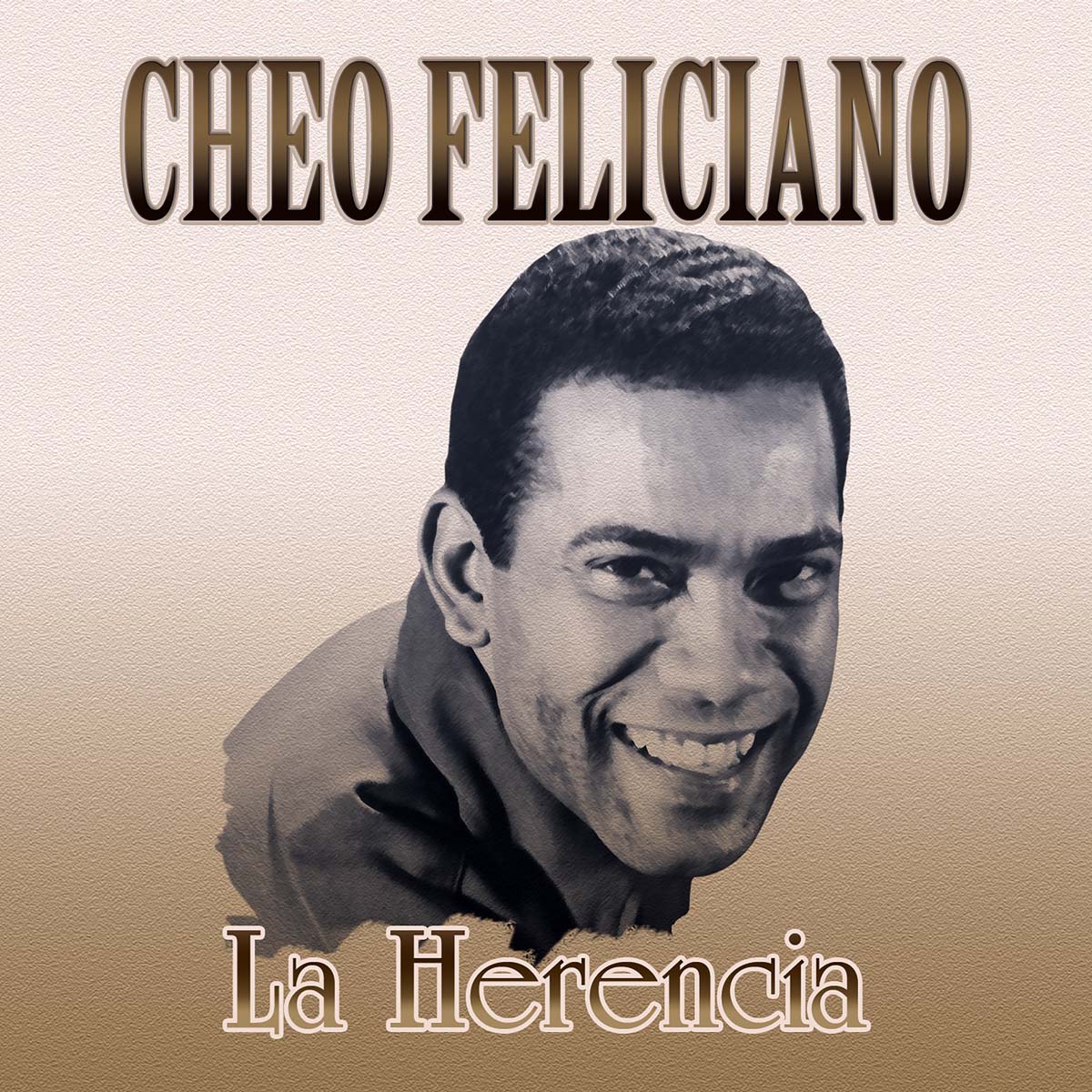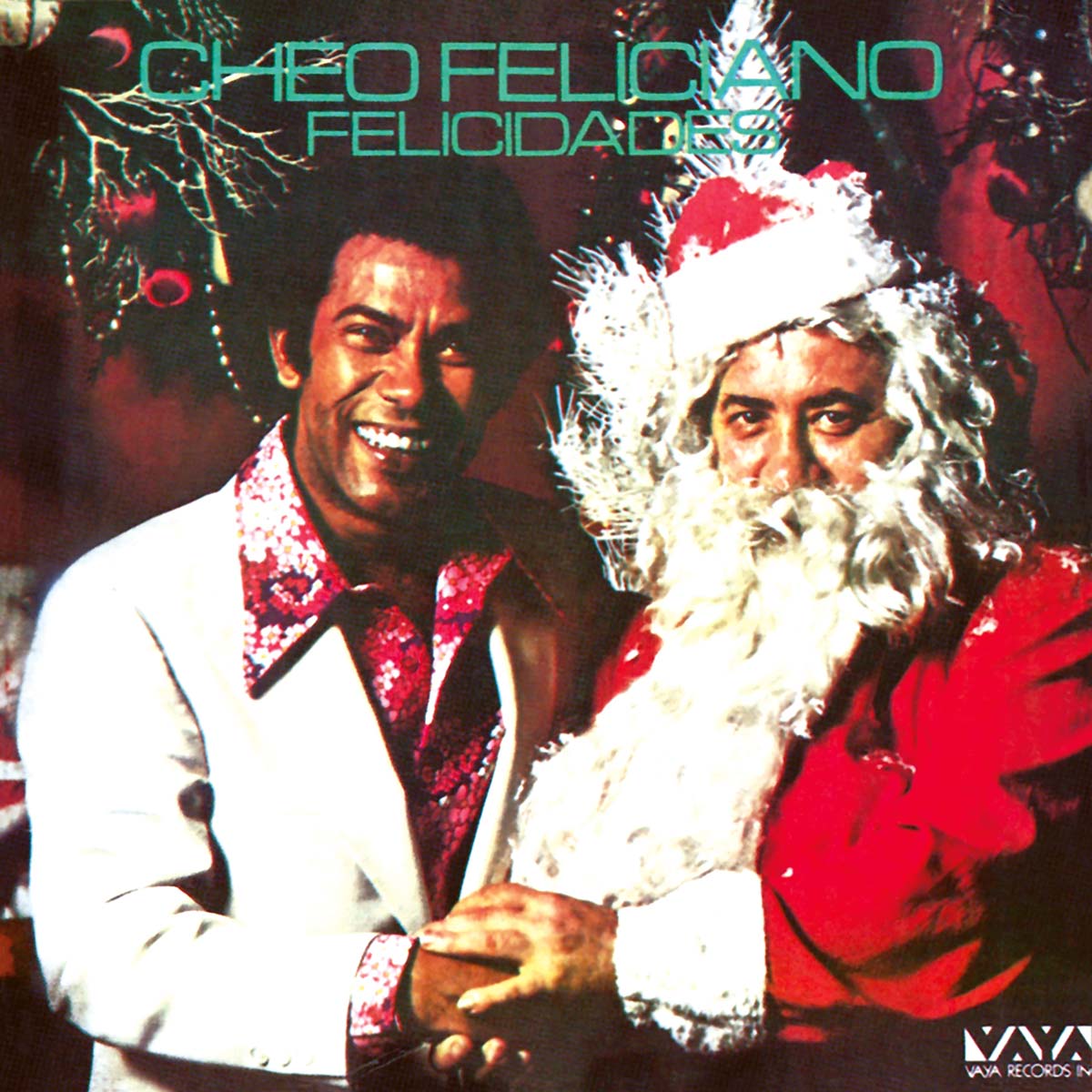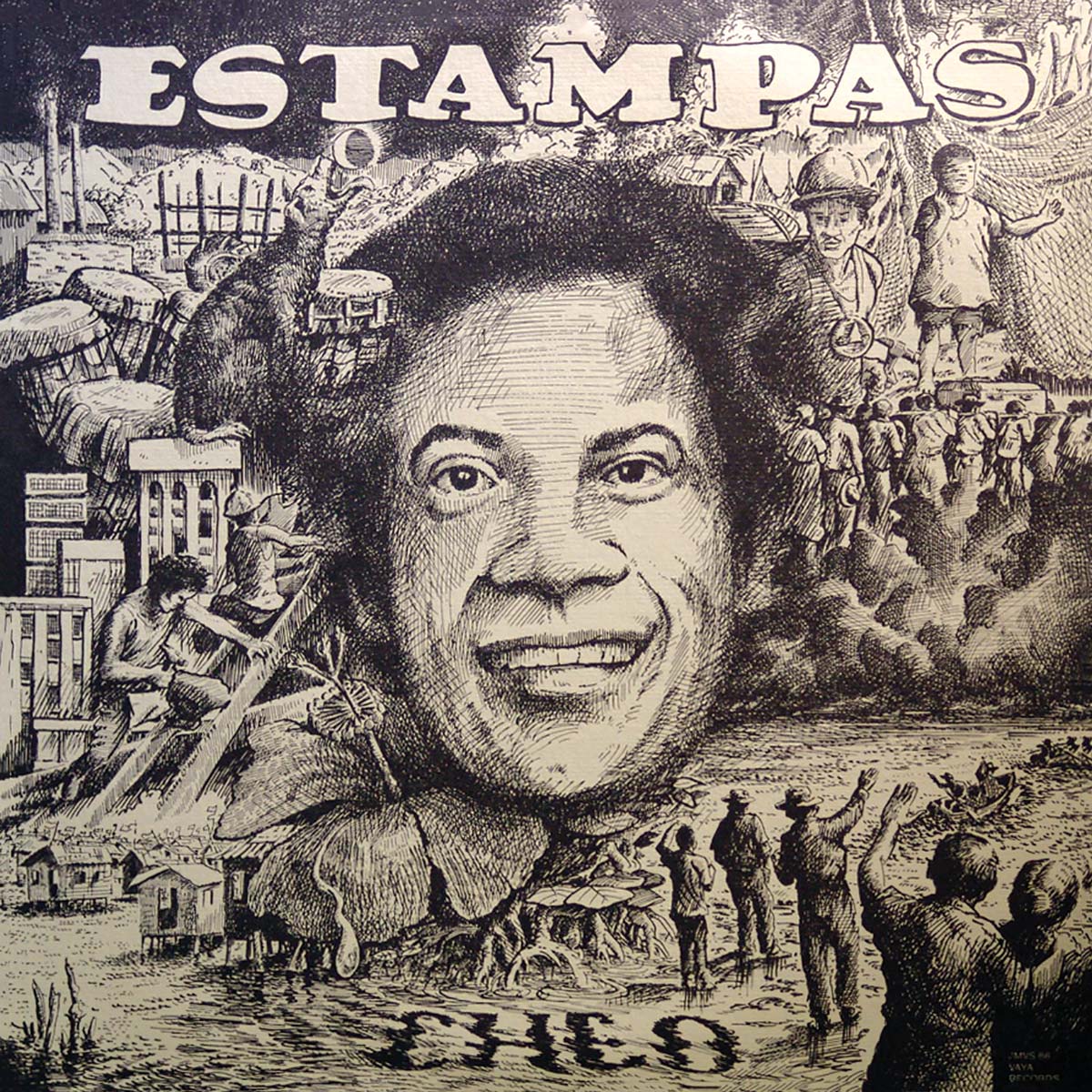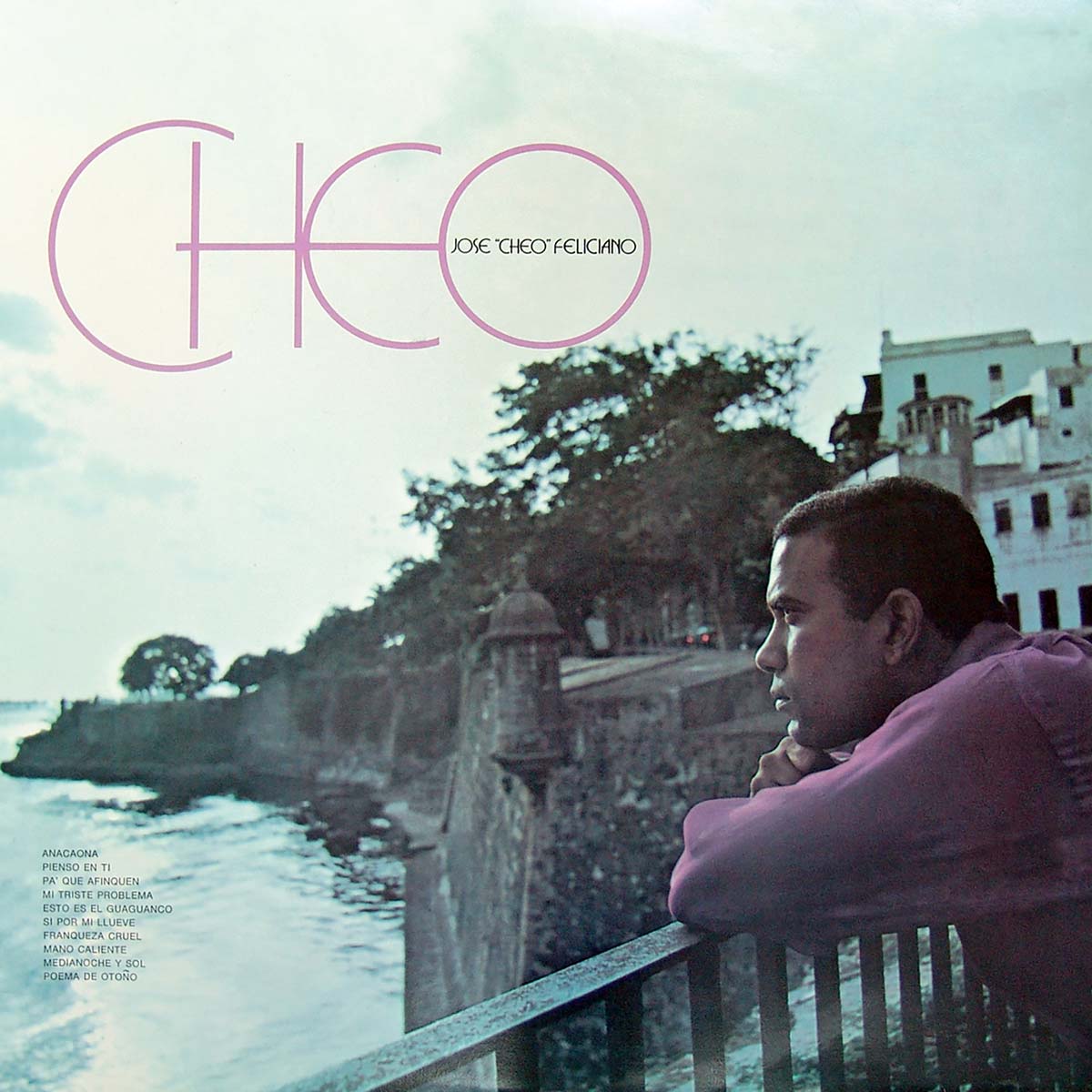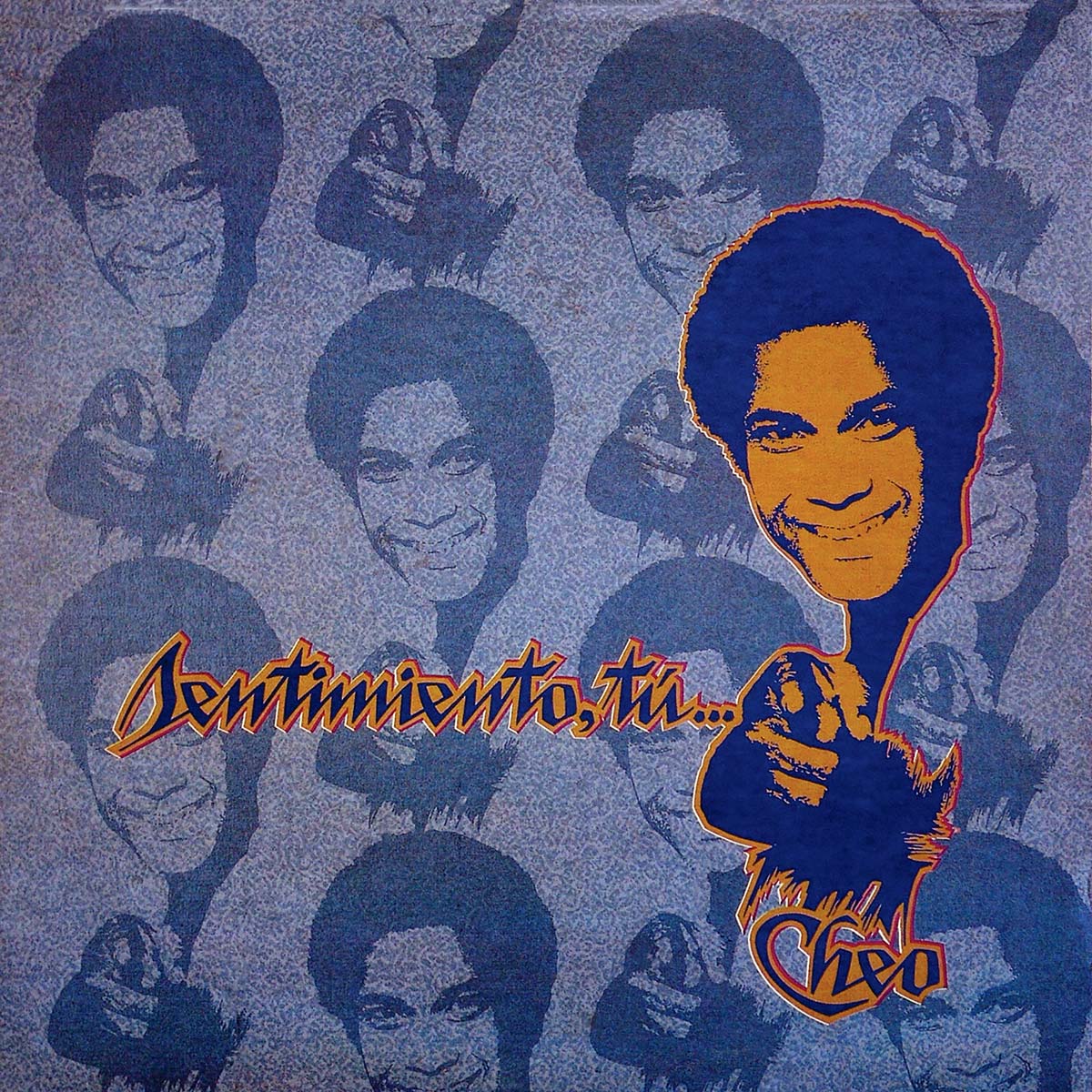
SENTIMIENTO, TU CHEO FELICIANO Puerto Rican born Jose Cheo Feliciano moved to New York City in 1952 to work as a percussionist. Upon the recommendation of Tito Rodriguez, Feliciano’s illustrious singing career started in the 1960’s with the Joe Cuba sextet and then later with the Alegre All Stars and Eddie Palmieri.
In 1971, Feliciano signed a recording contract with Vaya (a Fania subsidiary) and became a member of the Fania All Stars. “Sentimiento, tu” (1980) was Feliciano’s last album with the Fania label and the third in a series of self-produced albums (Mi Tierra y Yo , 1977 and Estampas, 1979) recorded in Puerto Rico. The title, “Sentimiento, tu” , corresponds to one of Feliciano’s trademark phrases often used in his improvisations. It also is indicative of the album’s content. The songs in “Sentimiento, tu” are sung with, and are about, sentimiento (feelings). Most of the compositions in this recording were by the legendary composer Tite Curet Alonso (1926-2003), someone who shared Feliciano’s sentimiento for the people. Feliciano, with the help of Alonso, was able to deliver provocative songs of solidarity without the need of an explicit moral or political message. For example, the song “Juan Albañil” is about a brick layer who can’t afford to live in the homes and condominiums that he constructs due to their high prices and society’s sociological prejudices. “Sobre Una Tumba Humilde” compares the mourning of a poor family to that of a wealthy one. The poor cannot afford an engraved marble headstone but does offer a genuine and humble “sentimiento” represented in the song as a flor de llanto (a “flower of tears”). “Lamentación Campesina” is a story about the jíbaro (the rural and poor Puerto Rican). This later song is Alonso’s contribution to the history of Lamentos in Latin music. The composers of Lamentos provided people the opportunity to vent their frustrations and show their pain through singing or crying. In “Lamentación Campesina”, the jíbaro is depicted as a stranger in his own land and is artfully lamented. Sentimiento also is a key ingredient in the immortal style of ballad know as boleros, and Feliciano is known throughout Latin America as one of its best interpreters. “Amada Mia” is the only bolero on the album but it is one of Feliciano’s greatest bolero hits. In his approach to boleros, Feliciano was influenced by Los Panchos, Tito Rodriguez, Gilberto Monroig, and Daniel Santos.
He has a sensual and unique voice, whose tone can become low and thick but always melodic. “Sentimiento, tu” has a larger orchestral composition and sound than the standard salsa instrumentation. The string section and the vibraphone of Luís Ramirez provides an occasional lush background that acts as a nice contrast to the harsher unison sound of the trombones. In spite of the many instruments, soloists are allowed to solo, such as Juancito Torres in “Salí Porque Salí” and the beautiful vibraphonist Louie Ramirez in “Noche sensacional”. “Lamentación Campesina”, “Castillos de Arena”, and “Cuento Número Uno” stand out in “Sentimiento, tu” for the complexity of their arrangements, the interesting rhythmic changes, and the contrasts of musical textures. For example, “Lamentación Campesina” changes between jíbaro music (aguinaldo) and Afro-Cuban styles in a seamless fashion. The use of the cuatro (a 10-string, guitar-like instrument) and the sound of the Coqui (a small frog found only in Puerto Rico) serve to emphasize the song’s theme. “Castillos de Arena” starts as a Cuban son and quickly becomes a Puerto Rican bomba, gaining momentum on different levels. “Cuento Número Uno” changes rhythmically at different times—and there are even Brazilian references, created by Roberto Roena through the use of the cuica (a Brazilian friction drum often used in samba music).
Feliciano’s versatility as a singer, as well as his street flavor and ability to improvise, are all evident in “Sentimiento, tu” The fact that Feliciano was a percussionist at an early age must have something to with the mastery of rhythm he developed with his voice. “Sentimiento, tu” was the culmination of an important period in Feliciano’s musical career—and it is still one of his best.
Personnel: Pappo Lucca – Piano Luis García – Tres y Cuatro Roberto Roena – Percussion Papo Pepin – Percussion Cuqui Santos – Timbales Efrain Hernández – Bass Oscar Colón – Drums Pete “Conde” Rodriguez – Maracas Mario Cora – Clave Millito Cruz – Guitars Cheo Quiñones – Guiro Juancito Torres – Flugel Horn and Trompet Roberto Jiménez – Flute Victor Candelario – Trombon Ralphy Torres – Trombon Hector “Lutty” Maldonado – Trombon Sal Cuevas – Guitars (“Castillos De Arena”) Luis Ramirez – Vibraphone Strings – Carlos Rosario (Puerto Rico) and Harold Kohon (New York Strings) Chorus – Pete “Conde” Rodriguez, Mario Cora, Cheo Quiñones Female Voices in “Amada Mia” – Yanira Torres and Lourdes Robles Musical Directors – Papo Lucca & Luis Garcia Producer – Cheo Feliciano Producer Assistant – Cocó Recording Enginners – Carlos Poirot & Jaime Camacho Mezcla Final – Irv Greenbaum Original Cover Photo – Dominique Photographic Reproduction – Jochi Melero Recording Studio – Ochoa Recording, Puerto Rico
Written by Dr. Gregory Pappas


